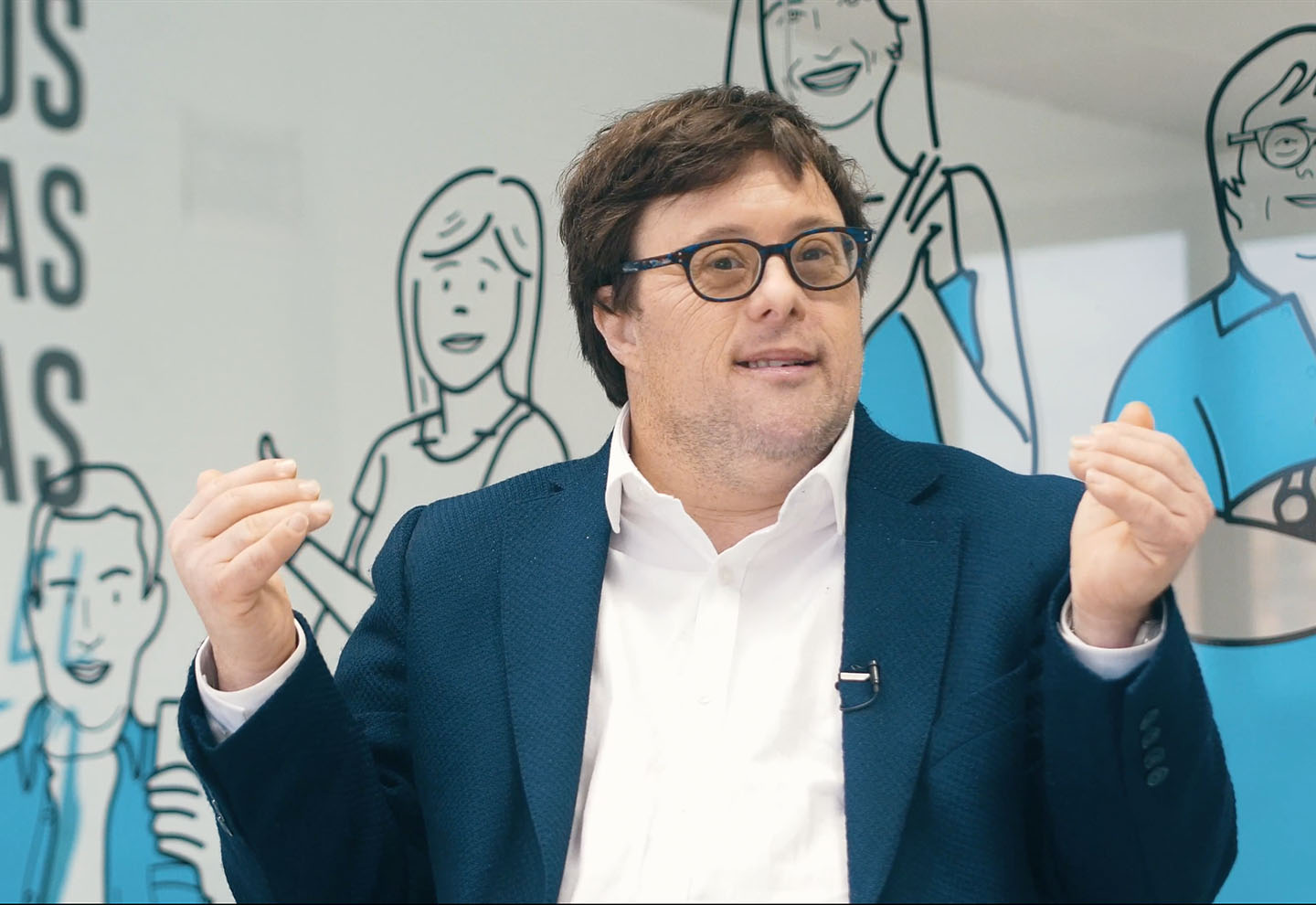“The pandemic has put us all in our place in the face of illness and mortality. Can you imagine a better wake-up call for embracing diversity?” asked Pablo Pineda.
“It has put us all on an equal footing and sent us back to the starting blocks in a quest to show our talents, skills and competencies. I believe that now is our time.”
The Spaniard holds a prestigious Concha de Plata Award for his performance in the film Yo, también (“Me too”). But he first made headlines for gaining a BA in Educational Psychology, as he was the first European with Down syndrome to do so.
“In the last 10 years we have seen a massive leap forward,” he explained to Professor Vanina Farber. “There’s still a long way to go — there always will be work to do — but we have gone from talking the talk to walking the walk and that’s a big achievement.”
Pineda believes we are starting “the decade of inclusion”, during which people with disabilities are going to surprise the world.
Talent without labels
People must be at the heart of the diversity and inclusion conversation. If you first discover the people who hold the talent, he observes, you’re seeing them with no filter. This is the “talent without labels” approach that Pineda encourages.
“Talent without labels is about putting the individual at the heart of the matter and then going within that person and asking what they can bring to the company. How can they enrich it? How can their talent take the company further in that direction?” he asked.
“We have to shake off prejudices and stereotypes because they put a veil over all that is good within us.”
If label-free is our future, then philanthropy is our past — certainly when it comes to how Pineda views diversity. But that doesn’t mean competition in the workplace should go out the window; quite the contrary.
However, competition from an inclusive perspective requires businesses to reset equal opportunities; it should not be about numbers, but about bringing different types of talent from a variety of individuals to the table.
“Diversity feeds competition — healthy competition,” Pineda believes, and choosing one employee over another because they can contribute more is absolutely the way to hire and promote.
Diversity in the workplace starts at school
Pineda pinpoints two major phases that happen before people enter the world of work that are key to them feeling included: a child’s family environment and education. And these two must feed off each other, he says, ideally with an attitude of “yes, why not?” infiltrating both.
“We should be trying to see the child as a person, not as a nuisance or a burden. The child should serve as a challenge, motivating the teachers and, as a consequence, the institution to improve.”
Children naturally have it in them to share, Pineda reminds us, adding that “they need to be educated, though, in order to read difference as something natural.”
Inclusion is a very personal matter to Pineda. “The fact that I was able to share in good moments and feel accepted is the reason I am here talking to you now,” he said, smiling.
When not on the red carpet, Pineda gives lectures on inclusivity and education, collaborating with the Adecco Foundation in Spain as Diversity Consultant in the group’s Diversity and Inclusion operations.
The Adecco Group Foundation describes its work as “a social innovation lab, incubating and accelerating new solutions in the world of work” and Pineda frequently speaks out on the Foundation’s labour-integration plans for people with disabilities.


